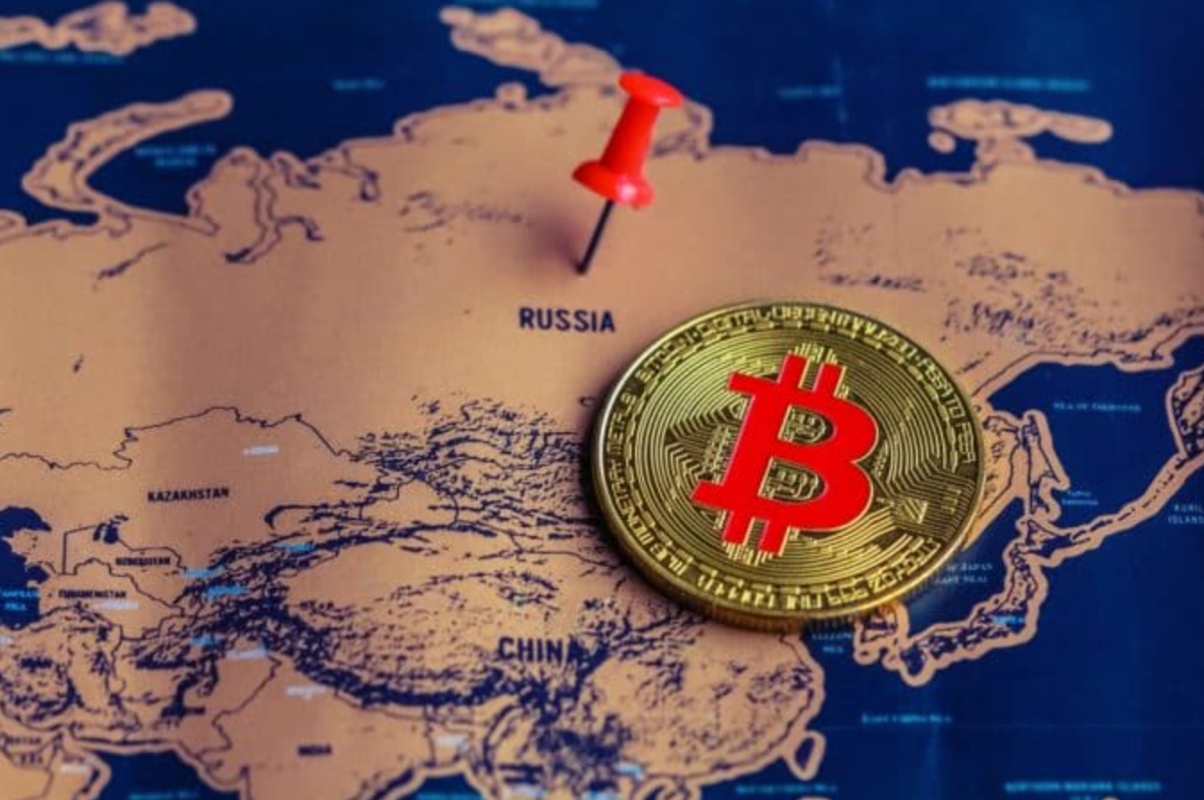THE LARGEST military conflict in Europe since World War II is happening in Ukraine after Russia invaded on Thursday, February, 24, but cryptocurrency could shape the outcome.
Both the Russian and Ukrainian economies have been global leaders in embracing cryptocurrencies and both countries are now turning to digital assets to gain an edge in the geopolitical showdown.
This means for the first time ever, a tool which can move billions of dollars easily across borders is available to be used by both sides.
People around the globe have already donated millions to nongovernmental organisations (NGOs) trying to defend Ukraine from Russia.
Vitaliy Deynega, an IT worker in Kyiv who founded a NGO called Come Back Alive, has raised over $4 million in cryptocurrency since the war began to buy medical and military supplies for the army.
This includes one single donation worth $3 million – received on Friday, February, 25.
The Kyiv Independent, an independent English news organisation has also raised $14,000 in cryptocurrency.
Many in Ukraine are already turning to Bitcoin as the country’s ATMs become depleted.
Danish journalists reportedly used Bitcoin to buy a car and flee the country.
Ryan Selkis, the founder of crypto firm Messari, tweeted on Thursday, February, 24: “One of the best things we could do as an industry is figure out how to support the Ukrainian people and their resistance with crypto contributions.”
Sam Bankman-Fried, CEO of crypto platform FTX, said on Twitter “we just gave $25 to each Ukrainian on FTX.”
But as well as helping Ukraine, Bitcoin and cryptocurrency can also help Russia.
Tom Robinson, chief scientist and co-founder of Elliptic, said: “Because there is no central controller who can impose their morals on its user, crypto can be used to crowdfund for the Ukrainian army or help Russia evade sanctions.”
The international response to Russia invading Ukraine has been swift, with Russia now facing widespread sanctions.
The European Union imposed sanctions aimed at “Kremlin interests,” while the US announced a number of sanctions aimed at Russia’s banks and state-owned enterprises.
Germany has frozen the Nord Stream 2, which was designed to increase the flow of Russian gas to Europe.
While the UK has imposed “punishing sanctions” that will “devastate Russia’s economy and target Vladimir Putin’s inner circle.”
But Bitcoin and other cryptocurrencies could give President Putin a way of evading sanctions and their financial costs.
Caroline Malcolm, Head of International Policy at Chainalysis, said: “As with the traditional financial system, Russia can leverage cryptocurrency to evade the sanctions that are being put in place in response to their invasion of Ukraine.
“As in the traditional financial system, the cryptocurrency ecosystem can put measures in place to identify transactions from identified sanctioned entities.”
In October 2021, US President Joe Biden warned cryptocurrencies could undermine the broader sanction regime.
The Treasury Department said: “These technologies offer malign actors opportunities to hold and transfer funds outside the financial system.
“They also empower our adversaries seeking to build new financial and payment systems intended to diminish the dollar’s global role.”
Examples of countries who have evaded sanctions through cryptocurrency include North Korea who part-financed its nuclear and ballistic missile programs using digital assets, according to a United Nations report.
Kim Jong-un’s state employed hackers to steal over $400 million in cryptocurrency from exchanges.
And in 2018, businesses in Iran were also able to use Bitcoin and other cryptocurrencies to evade sanctions imposed by then-US President Donald Trump.
Russia has established itself as a centre for illegal crypto activity including ransomware attacks and cryptocurrency-based money laundering, according to Chainalysis.
Russia collected around $400 million worth of cryptocurrency from ransomware attacks in 2021, 74 per cent of the global revenue from the crime, according to a recent study by Chainalysis.
Crypto businesses operating in Moscow City also pocketed $700 million worth of digital assets from entities linked to criminal activity over the last three years.
Bitcoin mining is also being pursued by President Putin as a second crypto-related stream of income.
In 2022, Putin said Russia has “competitive advantages” in Bitcoin mining, because of the country’s “surplus of electricity and well-trained personnel.”
Bitcoin mining in Russia has continued mostly without interruption since the invasion of Ukraine.
Will Foxley of Compass Mining said: “Much of Russian Bitcoin mining is powered by domestic natural gas or hydroelectric power in Siberia.
“It’s unlikely that hashpower goes offline, unless sanctions influence pool providers.”
It’s currently unclear if the Russian state holds any Bitcoin.
To combat the use of crypto to evade sanctions The US Treasury Department’s sanctions report argued for sanctions that were easily understood, enforceable and adaptable.
“The Treasury can build on existing outreach and engagement capabilities through enhanced communication with industry, financial institutions, allies, civil society, and the media, as well as the new constituencies, particularly the digital assets space,” the report said.
The report also called for the Treasury to invest in “deepening its institutional knowledge and capabilities in the evolving digital assets and services space to support the full sanctions lifecycle of activities.”





